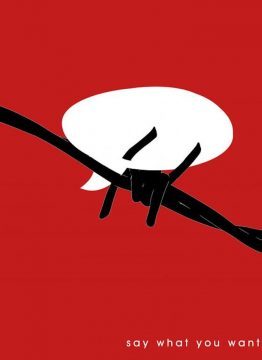Kenan Malik in Pandaemonium:
 ‘Who has the right to speak?’ It is the key question in debates around free speech. Who should be allowed to speak? What should be permitted to be said? And who makes the decision?
‘Who has the right to speak?’ It is the key question in debates around free speech. Who should be allowed to speak? What should be permitted to be said? And who makes the decision?
Historically, the issues were relatively clear. Censorship was imposed from the top. Its aim was to deflect, contain or deem illegitimate any challenge to power.
Today, the issues seem less straightforward. Censorship still exists in the traditional sense of shielding those in power from challenge. Increasingly, however, much censorship today, particularly in liberal democracies, is imposed in the name of protecting not the powerful but the powerless or the vulnerable: laws against hate speech, for instance, or restricting the scope of racists or bigots.
This has created confusion and debate, particularly on the left. Where once the left was clearly opposed to censorship, now many support restrictions in the name of the progressive good. As the left has vacated the ground of free speech, the right, and the far-right, have become encamped upon it. Their attachment to freedom of expression is illusory and hypocritical. But this has further distorted the debate because the cause of free speech has come to be seen as the property of the right and the far-right, and made many liberals, and many on the left, even more hostile to the idea of free speech.
What I want to do today is to address some of these issues.
More here.
